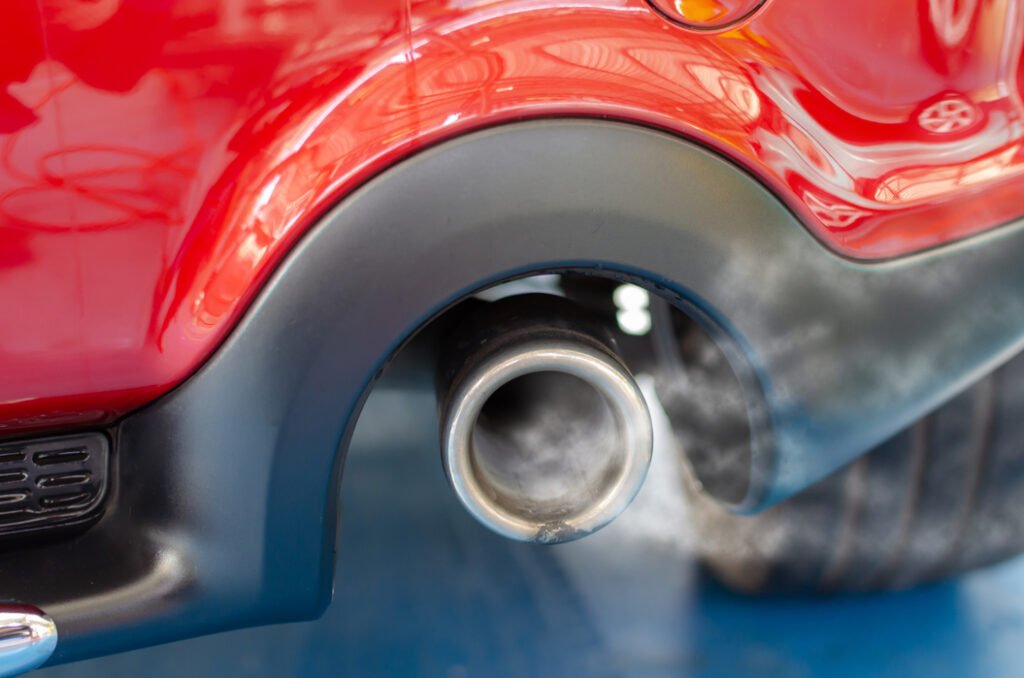
7 Indications Of A Clogged Catalytic Converter In Your Ferrari
The Ferrari catalytic converter is a component of a vehicle’s exhaust system, and its basic function is to transform harmful exhaust gases like hydrocarbons and carbon monoxide into less damaging elements such as carbon dioxide and nitrogen gas. The efficiency of your Ferrari may suffer if the catalytic converter is blocked.
The most typical indication of a blocked catalytic converter in a Ferrari are restricted performance above a particular speed or loss of performance, erratic engine operation, abnormal exhaust gas odor, poor fuel efficiency, an illuminated engine check light, and occasionally rattling noises. Let’s have a look at some major indications of a clogged Ferrari catalytic converter.

Engine Power Reduction
If your engine does not produce enough power when you press the accelerator, you may have a blocked catalytic converter. Exhaust gases are held in the system of your vehicle when your catalytic converter clogs. This will result in increased exhaust pressure, leading to limited engine performance.
When attempting to speed or climb a hillside, a blocked catalytic converter will result in a loss of engine power. Here’s how a blocked catalytic converter leads to engine power problems.
Engine Overheating
A blocked catalytic converter fails to stop exhaust pollutants from exiting your vehicle’s system freely. This causes an increase in pressure and heat in your car’s engine. When heated exhaust gases cannot escape easily, the exhaust overheats manifolds. This raises the temperature of your engine.
The “Check Engine Light” Illuminates
In some situations, a clogged catalytic converter may cause a “check engine light” to illuminate your car’s dashboard. Some vehicles will display a P0420 problem code on the dashboard.
Although a P0420 error code does not expressly indicate that your catalytic converter is clogged, it suggests something is wrong with your catalyst system.
Misfires in Engines
Catalytic clogged converters hinder the free passage of fumes in the exhaust system, trapping exhaust gases in the combustion chamber.
In such a situation, the engine ignites, and compressed exhaust gases combine with the air-fuel mixture. A faulty mixture leads to an imbalance in your engine, resulting in a misfire.
Increased Tailpipe Exhaust Pressure
Clogged catalytic converters create excessive back pressure in your exhaust. An imbalance in the air-fuel combination might result from increased back pressure. This might cause your engine to stall or lead to overheating, reducing engine power. A blocked catalytic converter reduces the flow of your exhaust. This might result in automobile vibrations or a violent pressure surge in your engine.
Low Fuel Economy
Poor fuel efficiency and decreased gas mileage are signs of a blocked catalytic converter. However, there are disagreements about the link between fuel economy and blocked catalytic converters.
But when your catalytic converter becomes clogged, your engine has to work extra hard to keep pace with the power required by your vehicle. This is because more power is used in the exhaust system. However, while a blocked catalytic converter may not significantly impact your fuel economy, decreasing fuel efficiency is a symptom to be aware of.
Rattling sound
One of the indications of a blocked catalytic converter is rattling sounds. This is a common sign of faulty catalytic converters. The longer your catalytic converter is blocked, the more noise it produces.
This noise is caused by your “CAT’s” ceramic honeycombs starting to break out. As you try to speed, the rattling sounds will become louder.
A catalytic converter is unquestionably important for any car’s exhaust system. As a result, you should have your car checked and diagnosed by an expert.

